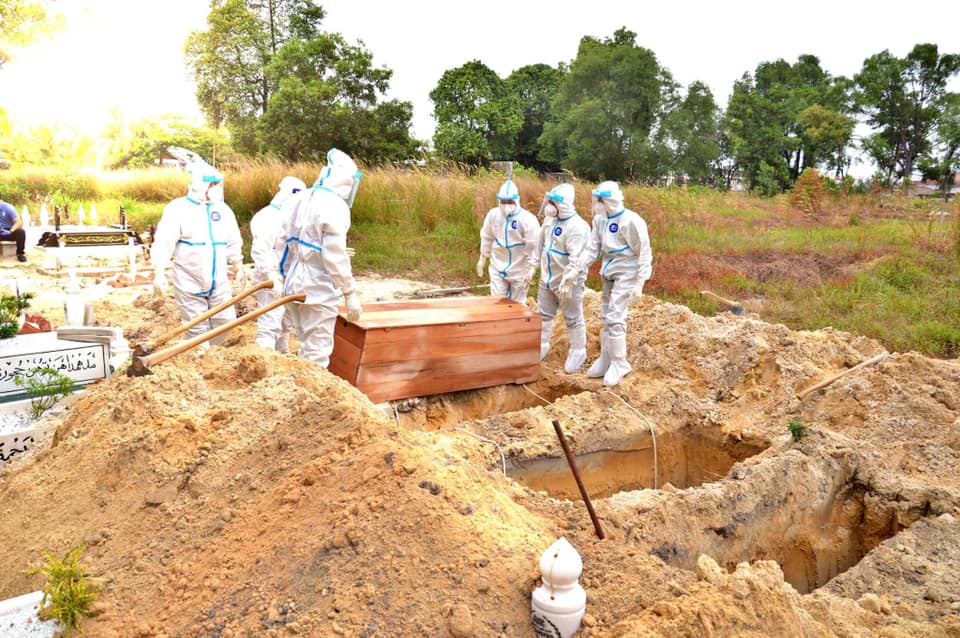Comorbidities
The National Health and Morbidity Survey 2019 reported that 20 per cent, 30 per cent, and 40 per cent of Malaysian adults have diabetes, hypertension and high cholesterol respectively.
Of the risk factors of diabetes, hypertension and high cholesterol, it was estimated that 1.7 and 3.4 million people have three and two of these factors respectively. There are significant numbers who were unaware of their conditions.
Of those who were aware, there were significant numbers in whom the conditions were uncontrolled.
It was known early that Covid-19 affects senior citizens and people with comorbidities like diabetes, hypertension, cardiac disease, cancer, and other comorbidities.
Yet, to date, there has been no concerted attempt to address these risk factors, which increase the likelihood of severe disease and death from Covid-19.
Migrant Workers
There are about two million documented migrant workers, and an unknown number of undocumented ones. Initially, these workers were assured that immigration status did not matter when they were asked to come forward for testing.
Yet, many of the undocumented workers who came forward were deported. Its impact was well summed up by the WHO’s local representative, who, in an interview with a web portal on May 11, 2020, stated: “The fear of arrest and detention has pushed some workers into hiding, preventing them from seeking treatment, with negative consequences for their own health, and creating further risks to the spreading of Covid-19 to others.”
Although migrant workers comprised a significant number of cases and deaths, organised screenings of these workers were only made mandatory in the Klang Valley in January 2021.
The human resources minister was reported to have stated on December 3, 2020 that 1.4 million (91.1 per cent) of migrant workers are housed in accommodation that do not comply with the Workers’ Minimum Standards of Housing and Amenities Act (446), which was passed in 2019.
Although action against employers who contravened the law were promised, there was no data provided on whether there has been any improvements in the migrant workers’ accommodation.
It is apparent that the root cause, which is overcrowding in accommodation, making for a fertile breeding ground for the virus, has yet to be addressed.
Standard Operating Procedures
There were many standard operating procedures (SOPs), some of which were changed frequently, or were inconsistent with other SOPs.
Some SOPs prescribed times and spaces for various activities. It appeared that the virus had knowledge of time and space. Some SOPs contributed to confusion and non-compliance.
It took more than 18 months for the authorities to realise that there were 181 SOPs. It was reported on October 18, 2021 that the number will be reduced to one general SOP with nine guidelines, but since then, there has been silence.
There was criminalisation, shaming, and even stigmatisation of individuals who did not comply with the behavioural changes prescribed in the SOPs. However, some politicians were treated differently from the man on the street. These double standards drew the ire of the public.
The influence of the behaviour of some politicians on their constituents on SOP compliance could not have been positive. This impact on viral spread has yet to be studied.
Risk Communication
Risk communication has left much to be desired. The messages of various ministries and government agencies were not synchronised and were even contradictory at times.
Public health messages were predominantly in Bahasa Malaysia, and occasionally in English. There were no versions in Iban, Kadazan, Mandarin, Indian, and the languages of the foreign workers.
Yet, during election time, the messages have always been in the languages of all the Malaysian communities. Was the approach to public health messaging due to parochialism at best, or racism at worst?
With low health literacy in Malaysia, this led to the population relying on family, friends, work mates, social media, rumours etc for public health information which contributed to various degrees of misinformation, even disinformation and confusion.
At the heart of the above errors were political instability and poor leadership.
Political Instability
Politically stable countries like New Zealand, South Korea and Singapore held national elections without significant impact on Covid-19 cases. That there has been political instability since Covid-19 arrived on our shores would be an understatement.
Political wrangling, manoeuvrings, and campaigning with partial and oftentimes complete disregard for SOPs contributed significantly to the spread of Covid-19.
The Sabah state election was held on September 26, 2020. A synthetic control framework was used in the investigation of the spatial and temporal impacts of this election on Covid-19 spread was used to obtain causal estimates for direct and spillover impacts.
The results indicated “an estimated 70.0 per cent of Covid-19 case counts within Sabah post-state election were attributable to the election’s direct effect; 64.4 per cent of Covid-19 cases in the rest of Malaysia post-state election were attributable to the election’s spillover effects.” (doi: 10.1371/journal.pcbi.1008959)
Will politicians ever learn that they should contribute to the solution, and not be part of the problem? Will the electorate remember those who ignored SOPs and set negative examples for their constituents?
Leadership
Politicians were very busy during the pandemic. Their shenanigans laid bare their claims of caring for the rakyat.
The then-health minister claimed that the Emergency Ordinance, gazetted on January 14, 2021, was an important instrument to optimise the capability to manage the pandemic.
However, the measures taken by the Ministry of Health (MOH) during the Emergency were all within the remit of existing laws. Not only that, the number of cases and deaths soared during the Emergency.
The SOPs for the Malacca elections prescribed under the Prevention and Control of Infectious Diseases Act nails the claim of the then-health minister about the Emergency Ordinance.
Could there be any cogent claim that there was political leadership in Covid-19 management? Why were human rights ignored in Covid-19 management?
There was also a lack of professional leadership from the top right down to the ground level, with a lack of openness to ideas from subordinates who were committed and gave ideas.
Rigidness, and not flexibility, were the modus operandi despite the virus’s constant mutations. The approach was not only myopic, but smacked of arrogance, with minimal engagement with experts outside the MOH.
Although Covid-19 was a public health emergency, it appeared that the approach, for a long time, to its management was that of a clinical emergency.
The Greater Klang Valley Special Task Force (GKVSTF) had shown that aggressive coordinated public health and clinical measures could bring the dire situation then under some control.
Formed on July 8, 2021, the GKVSTF sought disbandment on September 15, about 10 weeks later as the “stress to the health system had been reduced”.
If one could turn back the clock, one cannot help but ponder what the Covid-19 situation would have been like, had a similar task force been established about the time of the Sabah state election.
Summary
Dr Deborah Birx, the White House coronavirus response coordinator, testified in a United States Congress investigation on October 12 and 13, 2021, about the Trump administration’s Covid-19 response.
She stated that more than 130,000 American lives could have been saved, had there been swifter action and better coordinated public health messages after the first wave.
The Trump administration ignored scientific and professional advice given in late 2020, which included more aggressive testing, expanded access to virus treatments, and better vaccine distribution.
A pertinent statement she made was “I felt like the White House had gotten somewhat complacent through the campaign season”.
Who was accountable in Malaysia? Will the unpalatable question of the high number of Covid-19 deaths per capita be addressed?
How many of the deaths were preventable? What about those who were brought-in-dead? Will there be an independent investigation into Covid-19 management in Malaysia?
There would be errors, even when knowledge about Covid-19 is evolving. However, the confluence of several major errors were the ingredients for the perfect storm which Malaysia experienced from June to September 2021.
There are many lessons to learn from these errors, provided there is an open and just culture. The conversion of the GKVSTF into a national rapid response task force is a step in the right direction.
However, much more needs to be done expeditiously, to ensure there is no repeat of the fatal errors which led to so many deaths.

Dr Milton Lum is a Past President of the Federation of Private Medical Associations, Malaysia and the Malaysian Medical Association. This article is not intended to replace, dictate or define evaluation by a qualified doctor. The views expressed do not represent that of any organisation the writer is associated with.








